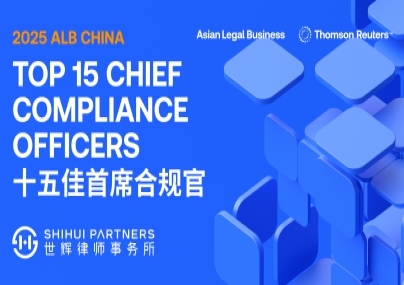随着近期商业及社会环境中一系列挑战到来,部分国际律所先后调整了在中国的业务布局。法律业务咨询专家称:与本土律所联营或许最有利于外所在华长期发展。
过去几个月,多家国际律师事务所相继缩小或调整了在大中华地区业务。3月,美国奥睿律师事务所首先宣布,其将于今年8月31日关闭香港办公室,正式退出香港法律服务市场。英国奥斯本·克拉克律师事务所紧随其后,于4月宣布同样关闭其香港办公室。到了5月,英国罗夏信律师事务所和美国文森·艾尔斯律师事务所则分别宣布将关闭北京办公室。
“突如其来的新冠疫情导致法律服务需求急剧下降,其深度和持续时间尚不清楚。”管理咨询机构Zeughauser集团主席Peter Zeughauser说道。Zeughauser集团在中国开设有律所业务咨询办公室,他本人也曾向众多领衔中国律所提供咨询服务。
此外,他还指出了另两个迫使国际律所削减在华业务的因素:中美贸易摩擦,以及日益激烈的竞争压力。
“中美贸易战已导致包括国际律师事务所在内的大多数律师事务所寻求减少管理费用的方法。大多数国际律所的北京办公室都是一种投资,而非盈利中心。” Zeughauser补充道。
“同时,近年来中国本土律所的服务质量发生了质的飞跃。许多本土律所的服务水平堪与顶尖国际律所比肩,而且费用更低。”
联营借力
鉴于目前存在的挑战,与中国本土律所联营可能是国际律所确保长期发展的良方,Zeughauser甚至称其为进入中国市场的“最佳途径”。
今年1月,英国“魔术圈”律所安理国际律师事务所宣布在上海自贸区内与朗悦律师事务所设立联营办公室,这也是上海自贸区内迎来的第七家中外律师事务所联营办公室。其他六家联营所分别为:奋迅•贝克麦坚时联营办公室、瀛泰·夏礼文联营办公室、福建联合信实·霍金路伟联营办公室、观韬中茂·亚司特联营办公室和上海昭胜·年利达联营办公室。
宣布联营之时,安理国际律师事务所北京和上海管理合伙人何志恒曾评论:“联营能让我们为众多国际及中国客户提供更深入、广泛的法律服务,以支持他们在中国和全球的商业活动。”
而联营的成功关键则在于找到合适的合作伙伴。史密夫斐尔律师事务所亚洲管理合伙人戴枫媚律师在此前与ALB的采访中表示,在确定与科伟的联营安排之前,史密夫斐尔与一些精品所和大型红圈律所都进行过接洽,最终选择科伟,是因为两家律所有许多相似之处,而且已然拥有良好的经验。
这一观点得到了贝克·麦坚时国际律师事务所的赞同。贝克·麦坚时于2015年率先与奋迅律师事务所在上海自贸区成立了奋迅•贝克麦坚时联营办公室——这也是上海自贸区内第一家中外联营办公室。“奋迅律师事务所的国际化理念及建立更有力的平台的目标与贝克麦坚时的合作和友谊文化非常吻合。作为一个联合平台,我们在满足贝克麦坚时在中国投资的客户以及奋迅•贝克麦坚时在海外投资的客户的需求方面实现了无缝协同。” 贝克·麦坚时全球主席郑维明律师表示。
Zeughauser向ALB透露,他当下就在为两个潜在的联营合作提供咨询。“在我看来,联营是渗透中国市场最安全的方式……北京和上海之外,国际律所显然对其他市场也具备野心,大湾区(深圳和广州)、杭州、成都都在他们的近期清单上。”
“如果说过去20年在中国提供律所业务咨询让我学到了一件事,那就是这里存在无穷尽的机会。”Zeughauser说。
For foreign law firms in China, joint operations can offer a sustainable approach
As a variety of business challenges force international firms to rethink their offerings in China, entering into joint operations with domestic law firms might offer the most beneficial long-term path.
The past few months have seen multiple international law firms cut back their operations in the Greater China region. In March, Orrick, Herrington & Sutcliffe said it would close its office in Hong Kong, an intention echoed soon after by the UK’s Osborne Clarke. They were followed by two announcements of Beijing office closures from Stephenson Harwood and U.S. law firm Vinson & Elkins.
Industry watchers say that COVID-19 might have been the last straw to add to already difficult conditions for law firms. For example Osborne Clarke said in a statement that COVID-19’s impact compounded the “disruption and uncertainty triggered by the lengthy political protests in Hong Kong.”
“The sudden COVID-19 precipitated drop in demand for legal services, the depth and duration of which is unknown,” says Peter Zeughauser, chairman of Zeughauser Group, which provides strategic advice to law firms. He adds that two other factors, the U.S.- China trade war as well as increasing competition, is pushing international law firms to retreat.
“The trade war between China and U.S. has caused many international law firms to look for ways to reduce overhead. The Beijing offices of most of those who have them have been an investment instead of a profit centre. Also, since the time that many of the international firms opened in China, the quality of the PRC firms has skyrocketed. Many of them provide levels of service and quality that are highly competitive with the very best international law firms, often at lower cost,” Zeughauser adds.
THE JOINT OPERATION SOLUTION
Given the existing challenges, international law firms might want to look at joint operations (JOs) with domestic law firms as a viable long-term approach, which Zeughauser terms as the “best route” to penetrate the PRC market.
In January, Magic Circle firm Allen & Overy (A&O) announced its JO with Shanghai Lang Yue Law Firm in the Shanghai Pilot Free Trade Zone, becoming the seventh international law firm to enter into a JO after Herbert Smith Freehills (with Kewei), Linklaters (with Zhao Sheng Law Firm), Ashurst (with Beijing Guantao Law Firm), Hogan Lovells (with Fujian Fidelity Law Firm), HFW (with Wintell & Co), and Baker McKenzie (with FenXun Partners).
At that time, Victor Ho, A&O’s Beijing & Shanghai managing partner said: “the joint operation will give our considerable roster of international and PRC clients an even deeper and broader set of capabilities to support their activities in China and globally.”
The key to a successful JO, though, is to find the right fit. In an earlier interview with ALB, May Tai, now Asia managing partner at HSF, says that before the firm tied with Kewei, it had met with a mix of niche boutiques and large Red Circle firms. What helped it select Kewei was the compatibility and the good relationship between the two firms.
This is echoed by Baker McKenzie, which has had as JO with FenXun since 2015. “The FenXun Partners’ international mindset and vision for a stronger platform fit well with the Baker McKenzie culture of collaboration and friendship. As a combined platform, we have achieved seamless synergies in servicing the needs of Baker McKenzie’s clients investing into China and of Baker McKenzie and FenXun’s clients investing overseas,” Milton Cheng, Baker McKenzie's Global Chair, said in an earlier interview with ALB.
To contact the editorial team, please email ALBEditor@thomsonreuters.com.


